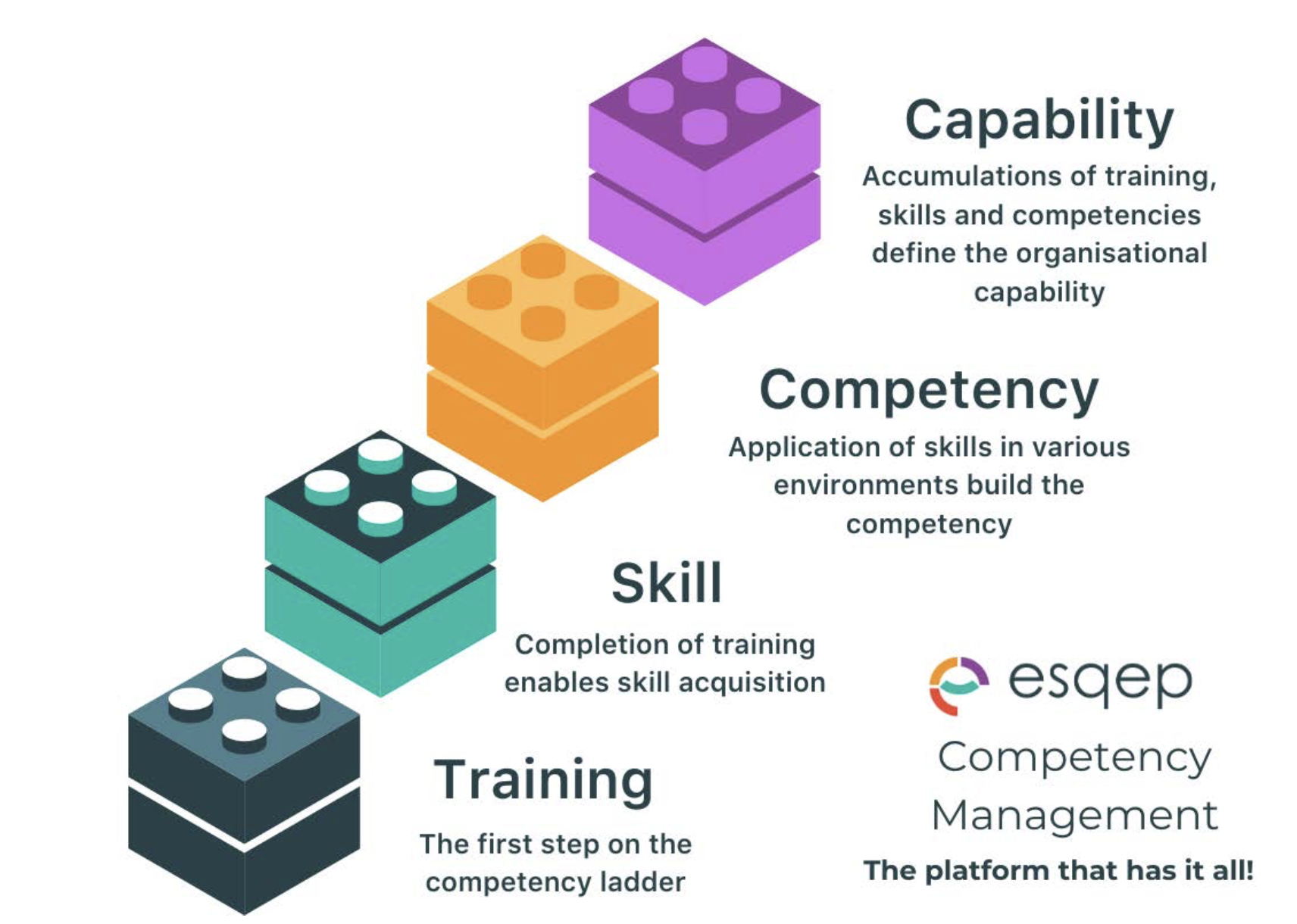Bobbie King, CEO and Co-Founder of SQEPtech, emphasises the significance of comprehending terminologies related to individual and organisational performance to enhance workforce competencies and capabilities
Skills-based or competency-based approaches seem to be a popular discussion when managing workforces, but how can we ensure that employees and employers optimise how these are managed?
For individuals, developing and maintaining competency in skills enables current and future careers. Equally, organisations can develop workforce competencies to gain a competitive advantage in dynamic markets and thrive as their business environment evolves.
When describing one’s abilities and strengths, the words ‘skills’, ‘competencies’, and ‘capabilities’ are often used interchangeably. However, they have distinct meanings, and understanding their differences is important. While all three are related to performance and potential, they each refer to different aspects of a person’s abilities. This article will explore the definitions and nuances of competencies and capabilities and how they differ from skills. Understanding these differences can help us better understand our strengths and areas for development and how to communicate them to others effectively.
Understanding skills – the building blocks of performance
When it comes to personal performance, skills act as the bedrock. These are the tangible abilities we cultivate through education, experience, and practice, allowing us to execute specific tasks with precision. Think about skills as the tools in our professional toolkit. For example, being adept at coding in Python is a skill, just like being proficient in presenting complex ideas to a group. This spectrum of skills, from technical expertise to soft skills, forms the foundation of our professional repertoire. They directly impact how effectively we carry out our work duties and, thus, are instrumental in shaping individual and organisational outcomes. While skills might seem rudimentary compared to the wider context of competencies and capabilities, they remain fundamental to our professional journey as stepping stones towards enhanced performance and career advancement.

Digging deeper into workforce competencies – more than just skills
Competencies are not just an extension of skills but a comprehensive concept that factors in applying skills within a particular role or setting. Whilst skills could be perceived as the tools we use, competencies are the craftsmanship with which we apply these tools, demonstrating a nuanced understanding and aptitude for job-specific tasks.
Beyond mere skill proficiency, competencies encapsulate knowledge, attitudes, and behaviours contributing to successful job performance. Think of them as a blend of practical and theoretical knowledge, people skills, problem-solving ability, and attitude towards work. They paint a fuller picture of an individual’s ability to perform within their role.
For instance, a skilled copywriter may have the technical ability to craft compelling content. However, a competent copywriter demonstrates the ability to adapt their writing style to different audiences, brainstorm innovative concepts, meet tight deadlines, and work collaboratively with a team.
From a human resources perspective, competencies play a pivotal role as they provide a more holistic overview of a candidate’s suitability for a job, going beyond what’s on paper to examine how effectively they can utilise their skills. They help define job roles, pinpoint the right talent, set performance expectations, and evaluate workforce productivity, ultimately enabling organisations to streamline operations and build a more targeted talent pool, improving productivity across various facets of their operations.
Therefore, competencies aren’t just about doing a job; it’s about doing it well. By recognising and nurturing workforce competencies, individuals and businesses can enhance overall performance and navigate the path to success.
Capabilities – the business’s strategic power
Picture capabilities as the superpowers of an organisation woven from the thread of its employee competencies.
The capabilities of a business are not merely a reflection of the competencies of its employees but rather a strategic amalgamation of those competencies that push the company to thrive in a competitive marketplace. Organisations can have core competencies from which they derive competitive benefit, a unique mix of the workforce competencies, their values, and the business processes they implement. Organisational core competencies run throughout the organisation. Although they may be expressed and enacted by different organisation functions in a way that aligns with the role of those functions, they form a common standard across all of an organisation’s activities.
Capabilities are like a high-performance engine, assembled from individual components (competencies), each playing their role but together creating a powerful, unified force. They enable the business to adapt to changing markets, innovate novel solutions, and stand out in a crowded marketplace.
Take a tech start-up, for example, they may have a workforce highly skilled in coding (a competency), but their capability lies in leveraging this coding expertise to create cutting-edge software products, distinguishing them from competitors. Therefore, capabilities aren’t just a reflection of what a company does; they capture how it’s done differently and more effectively, emphasising its unique value proposition.
From a strategic perspective, understanding and nurturing business capabilities is critical. They can inform the organisation’s vision, shape its future direction, and be a competitive advantage. By recognising and investing in employees’ capabilities, organisations can gear up to navigate the unpredictable terrains of the business world and steer their way to success.
Making the most of workplace competencies, capabilities and skills
Skills, competencies, and capabilities are closely interlinked, each offering a unique perspective to view personal and organisational growth.
People who want to grow or change their careers can use the concepts of skills, competencies and capabilities to underpin their development strategy. Skills serve as stepping stones towards improved performance and progression, whilst competencies provide a broader perspective, encapsulating the application of skills in a role-specific context and showcasing our ability to excel within our job roles.
For organisations, capabilities that act as a foundation for core competencies are the strategic powerhouse. They reflect how a business can deftly weave together its workforce competencies to carve out a unique space in the market. Understanding and effectively harnessing these three concepts can help individuals and businesses enhance performance, foster development, and ultimately achieve their strategic ambitions.
So, whether you’re looking to progress in your career or drive your organisation towards success, take a moment to reflect on your skills, identify your competencies and consider your capabilities. Recognise the value of each, understand how they interplay, and leverage them to your advantage. In doing so, you’re not just adding to your knowledge base but building a solid foundation for growth and success. Ultimately, this nuanced comprehension distinguishes the remarkable from the ordinary in the business landscape.

This work is licensed under Creative Commons Attribution-NonCommercial-NoDerivatives 4.0 International.











